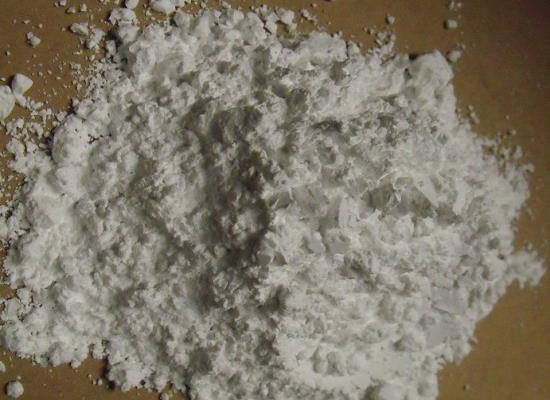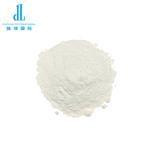Strontium Carbonate: Applications in Bone Regeneration and its Biological Synthesis
Jul 4,2024
General Description
Strontium carbonate plays a crucial role in bone regeneration as a key component in composite bioceramics. These materials enhance mechanical strength, promote bone integration, and support cell growth and differentiation for effective bone healing. Additionally, the biological synthesis of strontium carbonate using the fungus Fusarium oxysporum demonstrates the potential for environmentally friendly methods of producing mineral crystals. This process showcases the fungus's ability to facilitate the formation of strontium carbonate crystals with unique morphologies, highlighting the possibility of using microorganisms in material synthesis.

Figure 1. Strontium carbonate
Applications in Bone Regeneration
Enhancing Composite Bioceramics Properties
Strontium carbonate plays a critical role in the field of biomaterials, particularly in the development of bioceramics designed for bone regeneration. This compound is utilized in creating composite bioceramics, which are potential materials for effectively repairing bone defects. In the context of such innovations, strontium carbonate-based composite bioceramics are engineered to overcome the challenges associated with bone healing processes. Strontium carbonate is used primarily because it facilitates the integration of other beneficial materials, such as strontium-containing phosphate glass, to enhance the composite's properties. The incorporation of these materials leads to the formation of new compounds within the bioceramics, thereby improving their mechanical strength and biological compatibility. By adjusting the composite's makeup, strontium carbonate-based bioceramics show enhanced densification, which significantly increases their compressive strength. Moreover, strontium carbonate's interaction with phosphate glass in the bioceramics aids in promoting the precipitation of apatite on their surface, an essential factor for bone integration.
Supporting Bone Regeneration Process
This composite material also supports the sustained release of critical ions such as strontium, phosphorus, and sodium, which are vital for the bone healing process. These ions play significant roles in enhancing the proliferation and differentiation of bone mesenchymal stem cells, crucial steps in bone regeneration. Strontium carbonate-based bioceramics compare favorably with other bone regenerative materials like β-tricalcium phosphate bioceramics. They not only support cell growth but also activate important cellular functions such as alkaline phosphatase activity and the expression of osteogenesis-related genes. This makes strontium carbonate a key ingredient in formulating bioceramics that can be tailored to meet specific requirements in bone repair and regeneration. In summary, strontium carbonate's application in the fabrication of composite bioceramics underscores its value as a versatile and effective component in the development of bone regenerative biomaterials. It enhances the mechanical properties of bioceramics, supports biological functions necessary for bone healing, and provides a platform for integrating other beneficial materials to optimize bone regeneration. 1
Biological Synthesis
Fungus-Mediated Synthesis of Strontium Carbonate
The use of the fungus Fusarium oxysporum in the biological synthesis of strontium carbonate demonstrates a novel approach where microorganisms are harnessed to generate mineral crystals. By exposing the fungus to aqueous strontium ions, the carbonate ions provided by the fungus react with the strontium ions, resulting in the production of strontium carbonate. During its growth, Fusarium oxysporum secretes proteins that influence the morphology of the strontium carbonate crystals formed. The needle-like morphology and quasi-linear superstructures of these crystals signify a higher level of organization driven by the biological and chemical processes of the fungus. This "total biological synthesis" process exemplifies the capability of fungi in material synthesis and offers eco-friendly pathways for manufacturing strontium carbonate and similar substances.
Environmental Benefits and Future Prospects
The biological synthesis of strontium carbonate through Fusarium oxysporum showcases the environmentally friendly potential of utilizing microorganisms in material production. This method not only demonstrates the viability of fungi in synthesizing complex mineral crystals but also suggests sustainable approaches for obtaining strontium carbonate. By combining the natural abilities of the fungus with innovative techniques, researchers can explore further advancements in bioinspired material synthesis. The total biological synthesis process not only offers insights into the unique properties of strontium carbonate crystals but also lays the foundation for exploring diverse applications of biological-based synthesis in mineral crystal formation. As scientists delve deeper into the interplay between microorganisms and mineral synthesis, the field of biological material production is poised for exciting developments and environmental benefits. 2
Reference
1. Huang C, Zhou J, Rao J, et al. Fabrication of strontium carbonate-based composite bioceramics as potential bone regenerative biomaterials. Colloids Surf B Biointerfaces. 2022; 218: 112755.
2. Rautaray D, Sanyal A, Adyanthaya SD, Ahmad A, Sastry M. Biological synthesis of strontium carbonate crystals using the fungus Fusarium oxysporum. Langmuir. 2004; 20(16):6827-6833.
- Related articles
- Related Qustion
Doxorubicin hydrochloride exhibits potent anticancer effects via DNA interaction and immune enhancement, while a new nanocomposite sensor offers highly sensitive detection.....
Jul 4,2024APILithium tetrafluoroborate improves solid-state battery performance and safety, but its toxicity necessitates careful handling and compliance to mitigate health risks.....
Jul 4,2024APIStrontium carbonate
1633-05-2You may like
Strontium carbonate manufacturers
- Strontium carbonate
-

- $0.00 / 1KG
- 2024-06-27
- CAS:1633-05-2
- Min. Order: 1KG
- Purity: 99%
- Supply Ability: 500000kg
- Strontium carbonate,nanometre
-

- $20.00 / 1kg
- 2024-06-13
- CAS:1633-05-2
- Min. Order: 1kg
- Purity: 99%
- Supply Ability: 5000 Ton
- Strontium carbonate
-

- $0.00 / 25kg
- 2024-05-24
- CAS:1633-05-2
- Min. Order: 1kg
- Purity: 99%
- Supply Ability: 50000KG/month




